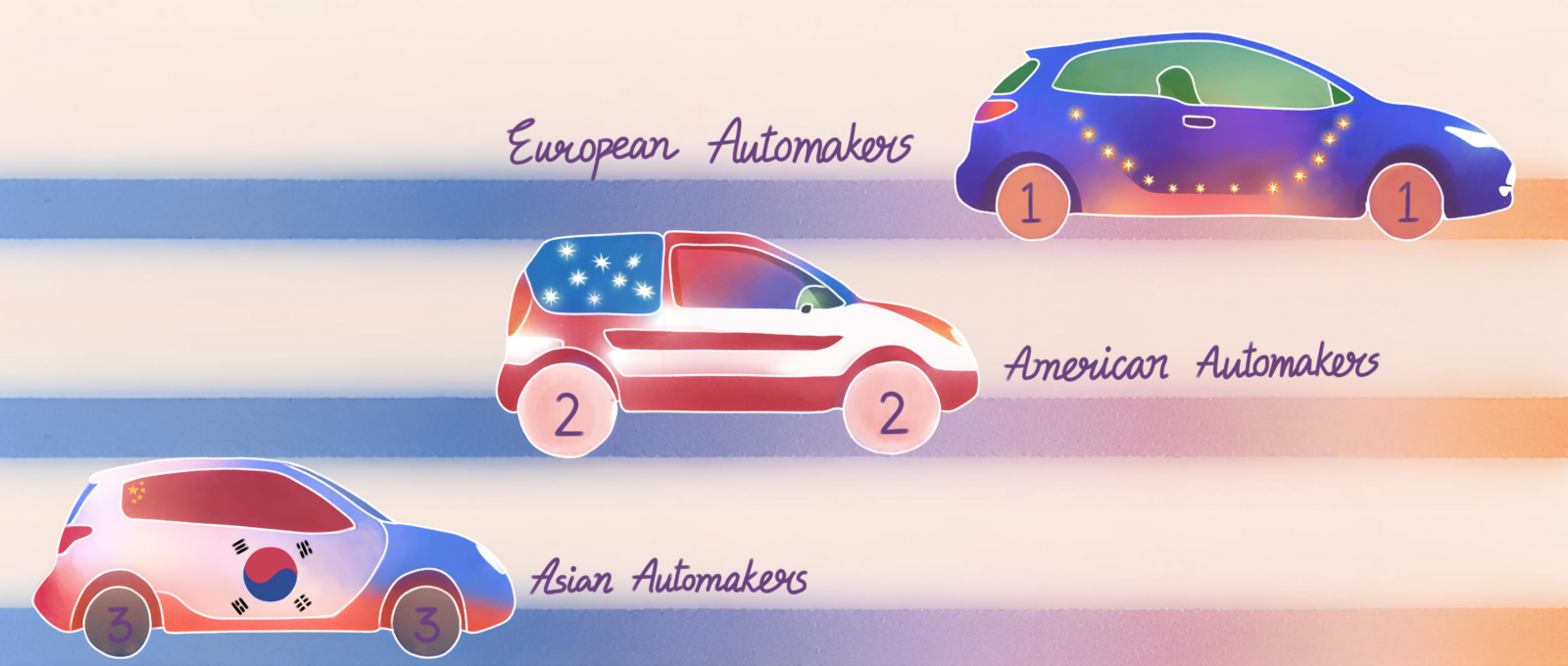EU Battery regulation
In August 2023 the landmark European Battery Regulation went into force, setting product and end of life obligations for batteries placed on the EU market.
The law is a turning point in fostering responsible sourcing practices, clean manufacturing via carbon footprint obligations and recycling and recycled content obligations for batteries, among other measures.
On responsible sourcing, companies placing batteries on the market will have to identify, prevent, mitigate and address environmental and social impacts in the supply chains of lithium, cobalt, nickel and natural graphite via due diligence obligations. Automakers are already doing preparatory work related to these obligations, which will become enforceable mid-2025, as seen also in the scorecard.
In relation to carbon footprint, companies placing batteries on the market will have to first calculate and report the carbon footprint of each battery model per manufacturing plant. As a next step the EU will grade batteries according to different carbon performance classifications, after which a mandatory carbon threshold will prevent the dirtiest batteries from being placed on the EU market at all.
Finally, to encourage closed loop recycling systems, the law sets out material recovery targets for lithium, cobalt, nickel and copper which go up to 80% by 2031 for lithium and up to 95% for the rest. Further, the law sets out minimum recycled content targets for key raw materials which will start only in 2031.
EU Critical Raw Materials Act
The European Critical Raw Materials act was agreed at the end of 2023, and represents Europe’s best effort to sustainably secure the minerals for its green transition. The law includes key benchmarks, including:
- 10% of the transition minerals Europe will need by 2030 to come from local extraction activities;
- 40% of the transition minerals processed in Europe, and
- 25% of the volumes of transition minerals in waste to be recycled.
One of the most tangible new provisions is the creation of ‘Strategic Projects’ across mining, refining, processing and recycling of critical minerals. The first set of projects will be selected in 2024 and will benefit from faster permitting on the condition that high environmental and social standards are met, and a proper engagement plan with communities is in place.
Projects in third countries can also apply to become a ‘Strategic Project’, if they obtain or commit to obtain sustainability credentials via a third-party certification scheme.
